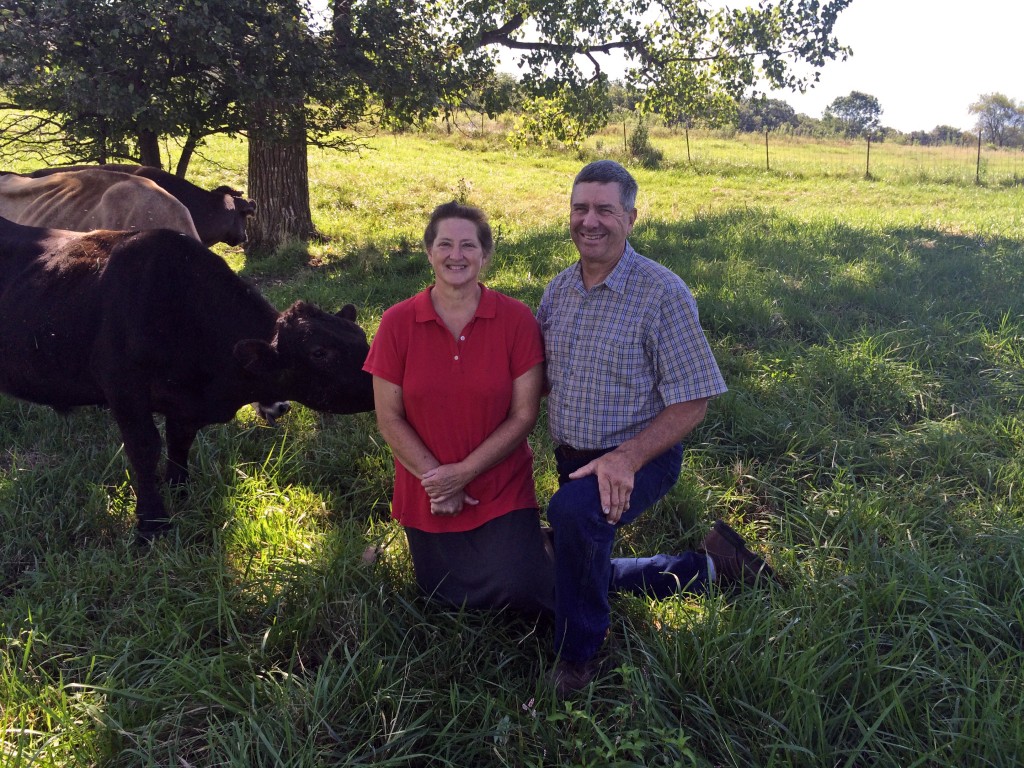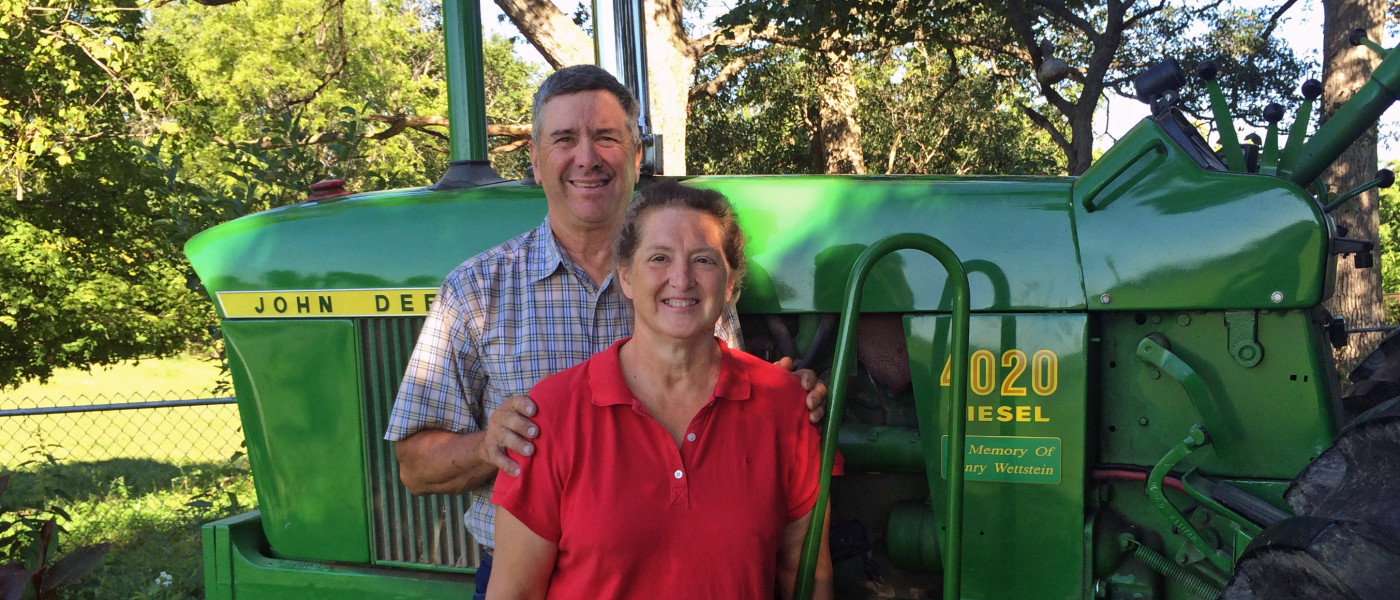In 1985, Dennis and Emily Wettstein were a young couple trying to help Emily’s aging father keep the farm in the family. It was a typical Illinois family farm: 300 acres of corn, soybeans, some beef cattle, a few Brown Swiss dairy cows and some poultry. Emily’s father and grandfather had been raised on the farm, and she was among the third generation of children brought up on the farm. Now, she and her husband Denny were determined to pass it on to the fourth generation.
The mid-1980s was a time of despair and crisis on farms across the country. Banks were foreclosing on farms across the heartland, farm auctions were a common sight, and many farmers were losing land that had been in their families for generations. An ominous uncertainty hung in the air. In 1983, Emily’s mother died of cancer at the young age of 66, compounding the sense of loss that was everywhere.
As 80,000 Americans gathered in Champaign, some 50 miles from the Wettstein farm, to hear the Farm Aid artists rally the country to save the family farm, Denny and Emily knew they had to do something different in order to save their farm, and restore their hope in the future of farming.
“Farmers know they’re on the industrial agriculture treadmill, and it’s extremely difficult to get off it.”
That summer, they convinced Emily’s father to let them try an experiment: they would plant one field with soybeans and grow the crop organically – that is, without the chemical herbicides, pesticides and fertilizers that had been used on the land for several decades. Emily’s dad, like most farmers of his generation, was highly skeptical of this new idea of “organic farming,” and he was convinced the experiment would fail. While Denny and Emily hand-pulled weeds after evening suppers and used compost for fertilizer, he continued to spray the different chemicals he had always used to control the pests and weeds. All summer a friendly competition, if not competing visions about agriculture, played out on those two adjacent soybean fields.
By harvest time the results were in: the yield of the organic soybean field equaled that of the conventional field. Everyone was surprised, especially Emily’s father. He went and spoke to the input dealers who sold him the chemicals to show them the results from the two fields, planted on the same day, and with the same soil and same weather conditions. He had followed their instructions about when and how often to spray his fields, so what was wrong? They told him, without cracking a smile, that he would have seen better yields if he had just sprayed one more time.
The summer of 1985 was a turning point for Emily and Denny, and for the future of the Wettstein farm. An idea was planted that summer that to this day continues to bear fruit. The following summer, in 1986, the organic field of soybeans produced one bushel more per acre than the sprayed beans, prompting Emily’s dad to go back to the input dealers. Again they told him: “You need to use more chemicals.”
Denny and Emily knew that chemicals were the problem, not the solution. Emily, who kept the books for her dad, showed him that the bulk of his income went to cover the cost of the inputs. In addition, both Denny and Emily were concerned about the health impacts of exposure to farm chemicals.
“As little kids,” Denny said, “we used to love to play in the bin of treated seed corn. We’d get in there and rake around in it with our fingers, and get covered with the pink chemical fungicides and breathe it in. Dad would be planting corn and we’d be playing in there like it was a sandbox. Years later, the chemical companies would tell us, ‘Boy, put on rubber gloves when you handle seed. Don’t be breathing that stuff and touching it.'”
Unlike many farmers around them who heeded the call from big seed corporations and commodity brokers to grow corn and soybeans exclusively, Emily and Denny kept their farm diversified and, over the span of five years, transitioned the entire farm to organic production. “The guys that are growing only corns and beans are like puppets on a string, at the mercy of the commodity markets,” Denny explains. “The corn and soybean rotation can’t work for much longer — it’s just not sustainable over the long term. Farmers know they’re on the industrial agriculture treadmill, and it’s extremely difficult to get off it.”
Today, the Wettstein farm is thriving. While some neighbors continue to think of them as the “weird organic farmers down the road,” Emily and Denny run a successful business that supports a family of 10 without the need of working a second or third job off the farm — the norm these days for most farmers.

Emily and Denny sell organic beef, pork, poultry and eggs directly to a growing number of customers who value fresh, healthful food and who want to see their food dollar benefit local farmers. They also raise organic soybeans, corn and other grains and sell organic feed to other organic livestock and dairy farmers in the area. “We enjoy everything we do on the farm,” said Denny. On warm summer evenings after supper, they gather their own children and members of their extended family to walk the rows of beans, and together hand-pull the weeds a couple of acres at a time — as they began to do in 1985. “Who would you rather pay to get rid of your weeds,” asks Denny, “your family and neighbors’ kids, or the big chemical companies?”
Are they hopeful? “The most encouraging change we’ve seen since 1985,” say Emily, “is that more and more people are coming to us for their food. City people are coming back to the farms with their own children to learn where their food comes from and how it is grown.” Denny adds, “Yes, we are hopeful. Our experience over the past 20 years with organic farming has restored our love of farming and given us the hope that the future of farming, if we continue to think outside the conventional box, is very promising.”
Learn more about Wettstein Organic Farm on their website.


